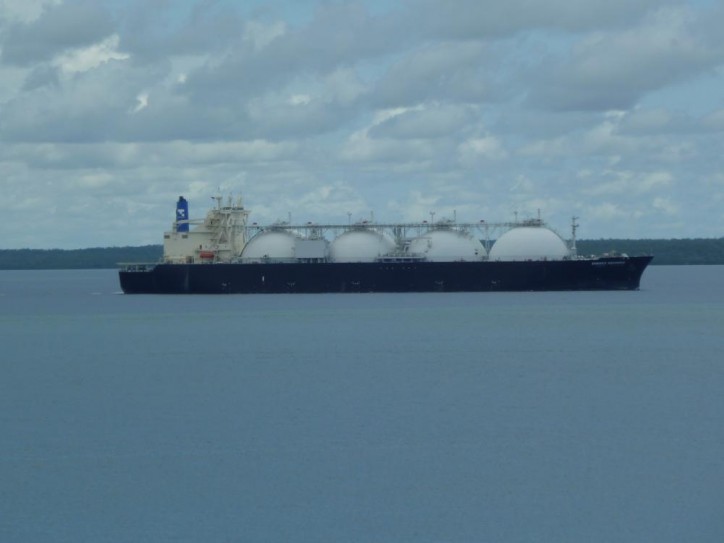Japanese market players have began ramping up their design efforts regarding fuel-efficient engines that would make it possible for them to challenge Korean yards given the current situation of rising demand for super-cooled fuel, according to a report in South China Morning Post.
A total of 50 to 60 LNG vessels are forecast to be delivered per year globally in respectively 2017 and 2018, with the aid of the US shale export projects, according to estimations made by Mizuho Securities analyst Masanori Wakae.
Out of the ships’ total number, 12 to 15 could possibly be delivered by Japanese suppliers, while the remaining vessels may likely be supplied by Korean ones. Japanese yards managed to deliver seven ships back in 2008 and a mere two vessels in 2013, as commented by Wakae.

Energy Advance, built in 2005 by Kawasaki in their shipyard in Sakaide
Japanese shipbuilding company Mitsubishi Heavy Industries’ engineers have envisioned the newest in fuel-efficient engines for liquefied natural gas carriers while others have designed tanks that provide a greater capacity. Years after their South Korean rivals managed to become the largest shipbuilders in the world, the Japanese are getting closer and closer to taking back a part of the industry they once heavily dominated on all fronts. Mitsubishi Heavy Industries Ltd. and Imabari Shipbuilding Co. are also cooperating with one another so that they would be able to construct eight LNG carriers on a yearly basis.
The Japanese Kawasaki Heavy Industries Ltd. is also planning to extend its existing, established relationship with China Ocean Shipping (Group) Co. (COSCO) into a co-op effort regarding the building of LNG carriers.
Japan's domestic shipping customers in the face of Nippon Yusen KK and Mitsui OSK are the largest LNG-carrier operators in the world. The top three shippers in the country are going to likely together spend over one trillion yen (HK$64.1 billion) by the year 2020 in numerous efforts of expanding their LNG fleet to a minimum of 281 vessels.
Out of the 134 LNG tankers that have been constructed since 2009, 100 were built by companies based in South Korea, 20 by Chinese shipbuilders and 13 were manufactured by Japanese yards, as reported by shipping-data provider IHS Maritime.